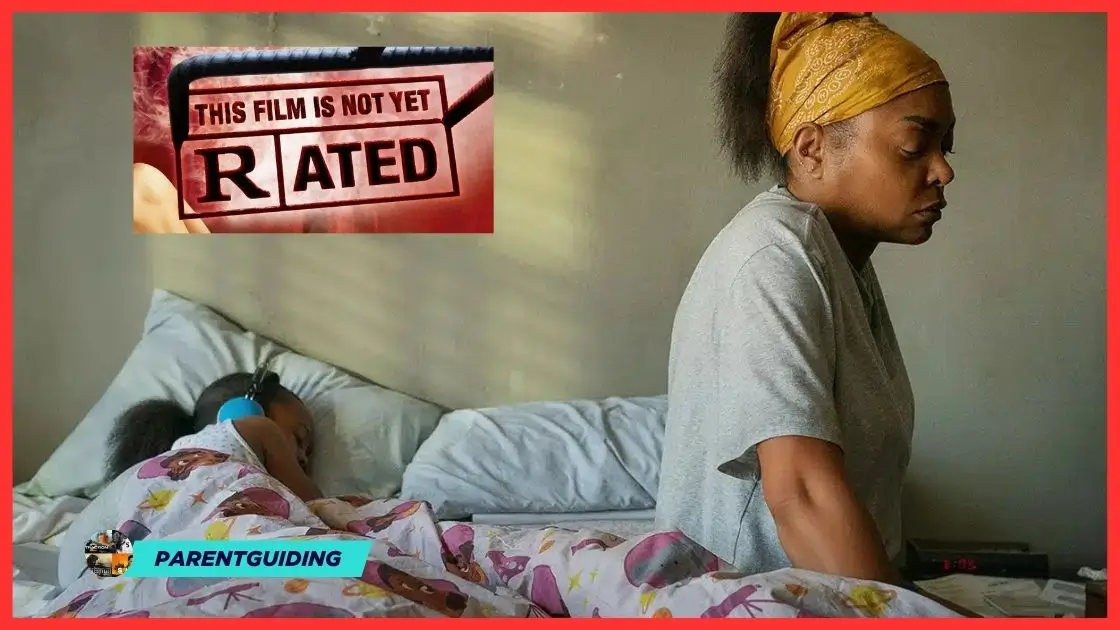Tyler Perry’s Straw is not rated because it has not undergone the official rating process by the Motion Picture Rating (MPA).
Tyler Perry’s Straw Review
Tyler Perry’s latest foray into dramatic storytelling might just be his most stripped-down and emotionally authentic yet. This isn’t the glammed-up, melodramatic world some may associate with Perry’s earlier work. Straw feels personal — raw in the way that real life is raw. And Taraji P. Henson? She doesn’t just lead the film — she lives it.
The film centers on a woman society doesn’t see, but Perry’s direction ensures we do. And once we do, we can’t look away.
The Story & What It Tries to Say
Straw follows Janiyah, a single mother navigating a catastrophic day — the kind of day where every thread in your life starts to fray all at once. She’s juggling an ill daughter, systemic indifference, financial instability, and a growing sense of suffocating isolation.
The plot unfolds like a slow-motion implosion, with each small moment — a missed bus, a cold interaction, a closed door — pushing Janiyah one step closer to the edge. But this isn’t a film about plot twists or clever turns. It’s a meditation on pressure. Emotional, economic, maternal.
At its core, Straw is about being unseen. It’s about what happens when kindness is withheld, when society forgets its most vulnerable, and when survival becomes the only goal. It’s a character study, but also a social indictment — not preachy, just brutally honest.
Does it succeed in what it’s trying to say? Unequivocally, yes. It whispers the truth many people live every day: “I have to do everything myself. Nobody sees us. Nobody hears us.” That line from Janiyah cuts deep — not just because of the words, but because of how lived-in the moment feels.
Performances & Characters
Taraji P. Henson delivers one of the most powerful performances of her career — and that’s saying something. There’s no glamour here, no Oscar-bait monologues. Instead, it’s all in her eyes, in her breathing, in the way her posture shifts as the day wears her down. She’s riveting.
Janiyah isn’t written to be a saint or a martyr — she’s just real. Frustrated, exhausted, loving, overwhelmed. And Taraji plays every note with such honesty that you feel it in your gut. You don’t just watch her struggle — you carry it with her.
Sherri Shepherd as Nicole is another surprise. Known more for her comedic work, she brings a layered stillness to the role. Her character doesn’t solve Janiyah’s problems, but she reflects another side of Black womanhood — one that’s also burdened, also fighting to hold it together.
And then there’s Teyana Taylor, who plays Detective Raymond with a subtle warmth and inner conflict. She’s not just a cop — she’s a woman quietly carrying her own weight, trying to connect with Janiyah without overstepping. The empathy between them becomes one of the film’s quietest but most affecting threads.
Together, these three women form a mosaic — not of stereotypes, but of different responses to a shared struggle. It’s powerful without ever feeling forced.
Direction, Visuals & Pacing
Tyler Perry directs Straw with restraint — and that’s what makes it so effective. There’s no glossy sheen, no sweeping melodramatic score. Instead, the film unfolds with a vérité-style intimacy, often using natural light and tight, handheld shots to trap us in Janiyah’s perspective.
The pacing is deliberate, even slow in parts — but that slowness feels intentional. You feel the weight of time the way Janiyah does. Every scene lingers just long enough to make you uncomfortable, and that discomfort is the point.
The visual style strips away distractions and just lets the emotions live on screen. It’s not flashy — but it doesn’t need to be. Perry doesn’t direct like someone trying to prove a point; he just lets the story breathe.
There’s one particular shot — Janiyah sitting alone at a bus stop, clutching her daughter’s medicine, tears welling but never falling — that feels like the quiet heart of the film. No words, just exhaustion.
As a drama, Straw doesn’t manipulate your emotions — it earns them. It’s not about big reveals or convenient catharsis. It’s about the long, drawn-out ache of trying to stay afloat when everything is designed to pull you under.
If you come looking for tidy resolutions, you won’t find them here. What you’ll find instead is truth — unglamorous, often painful, but deeply resonant. The emotional stakes feel grounded in reality. And when the tears come — because they will — they come from a place of recognition.
For anyone who’s ever lived paycheck to paycheck, cared for someone while breaking themselves, or felt invisible in plain sight, this film will hit home hard.
High Recommended:
Final Thoughts & Recommendation
Straw isn’t an easy watch — and that’s exactly why it matters. It forces us to slow down and see the people we usually pass by without a second glance. It doesn’t offer platitudes or magical solutions. It offers empathy. And in a time when the world feels increasingly loud and indifferent, that’s a quiet gift worth paying attention to.
This film isn’t for everyone — and that’s okay. But if you’re open to a story about invisible people trying to hold on to their humanity, Straw just might change the way you move through the world.
Straw 2025 Parents Guide
Violence & Gore: There’s no bloodshed, no punches thrown, no stylized brawls. But make no mistake: this film is intense. The violence here is emotional, internal, and deeply human.
Janiyah—our protagonist—is a young woman barely holding it together. We watch her unravel in real time, often alone. Her outbursts are raw and unfiltered: doors are slammed, objects are hurled, and voices are raised. Not out of malice, but from the overwhelming weight of pressure, fear, and exhaustion. It’s hard to watch, because it’s honest.
A police encounter late in the film is particularly nerve-wracking. It doesn’t escalate to brutality or violence, but the tension in the air is suffocating. You feel the fear, the powerlessness. The camera lingers on faces, on silence, and somehow, that makes it worse. Sensitive viewers—especially those who’ve lived through similar experiences—may find this scene deeply affecting.
There’s also a moment that strongly suggests a mental breakdown—frantic movement, guttural screams, a collapse that feels like the body finally saying enough. It’s not graphic, but it’s emotionally brutal. It’s one of those scenes that stays with you.
Sex & Nudity: None. And it’s not missed.
This film isn’t interested in romance or titillation. It’s about survival—specifically, maternal survival in a system that seems hell-bent on swallowing people whole. If you’re looking for love stories, look elsewhere. This one’s about grit, not kisses.
Profanity: Yes, there’s swearing—but it’s purposeful. The F-word is used a handful of times, and each one cuts like a blade. One moment in particular, when Janiyah cries out, “I have to do everything myself, every f**king thing I do myself,” is both heartbreaking and cathartic. It’s not gratuitous—it’s the sound of someone breaking.
You’ll hear other words too—shit, damn, hell—mostly during moments of stress or anger. But again, none of it feels thrown in for shock value. It’s organic to the world and the characters.
Alcohol, Drugs & Smoking: There’s no glorified substance use here. If someone lights a cigarette or sips from a bottle, it’s in the background, barely noticeable. Addiction and partying have no place in this story. The demons here are structural, not chemical.
Recommended Age: 16+
Director: Tyler Perry
Cast: Taraji P. Henson, Sherri Shepherd, Teyana Taylor
Release Date: June 6th, 2025
Rating: 8.5/10

I am a journalist with 10+ years of experience, specializing in family-friendly film reviews.
